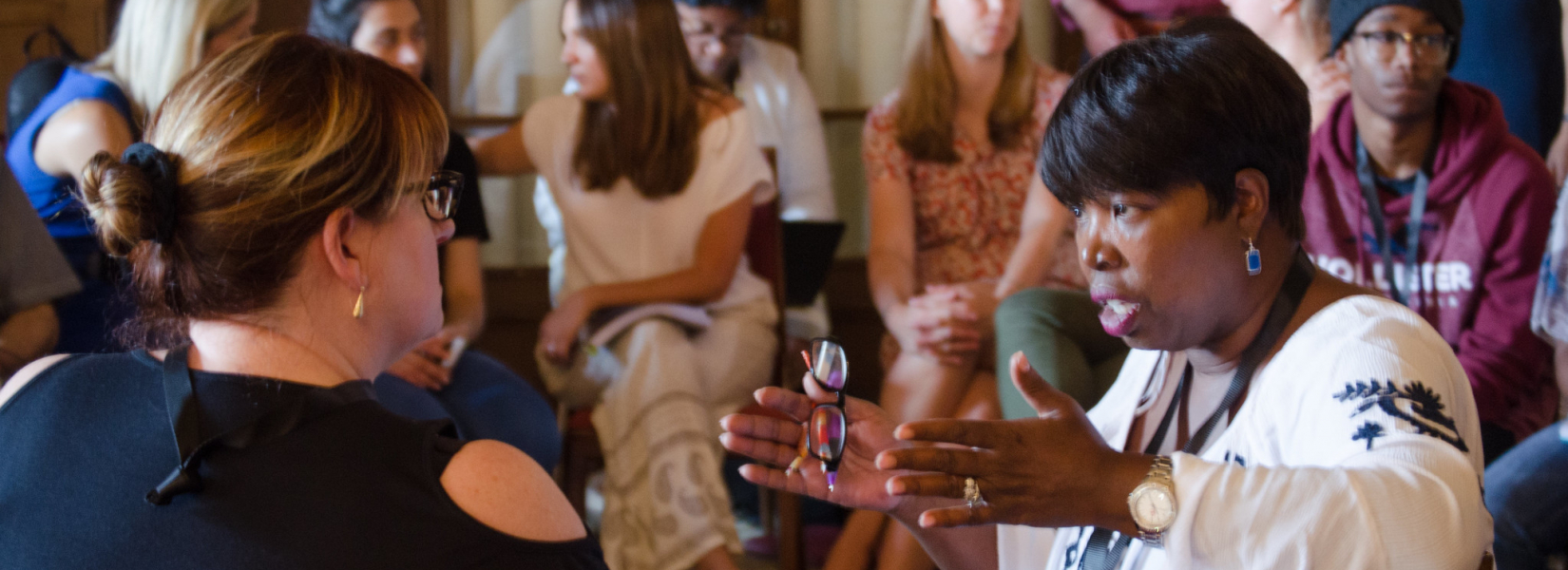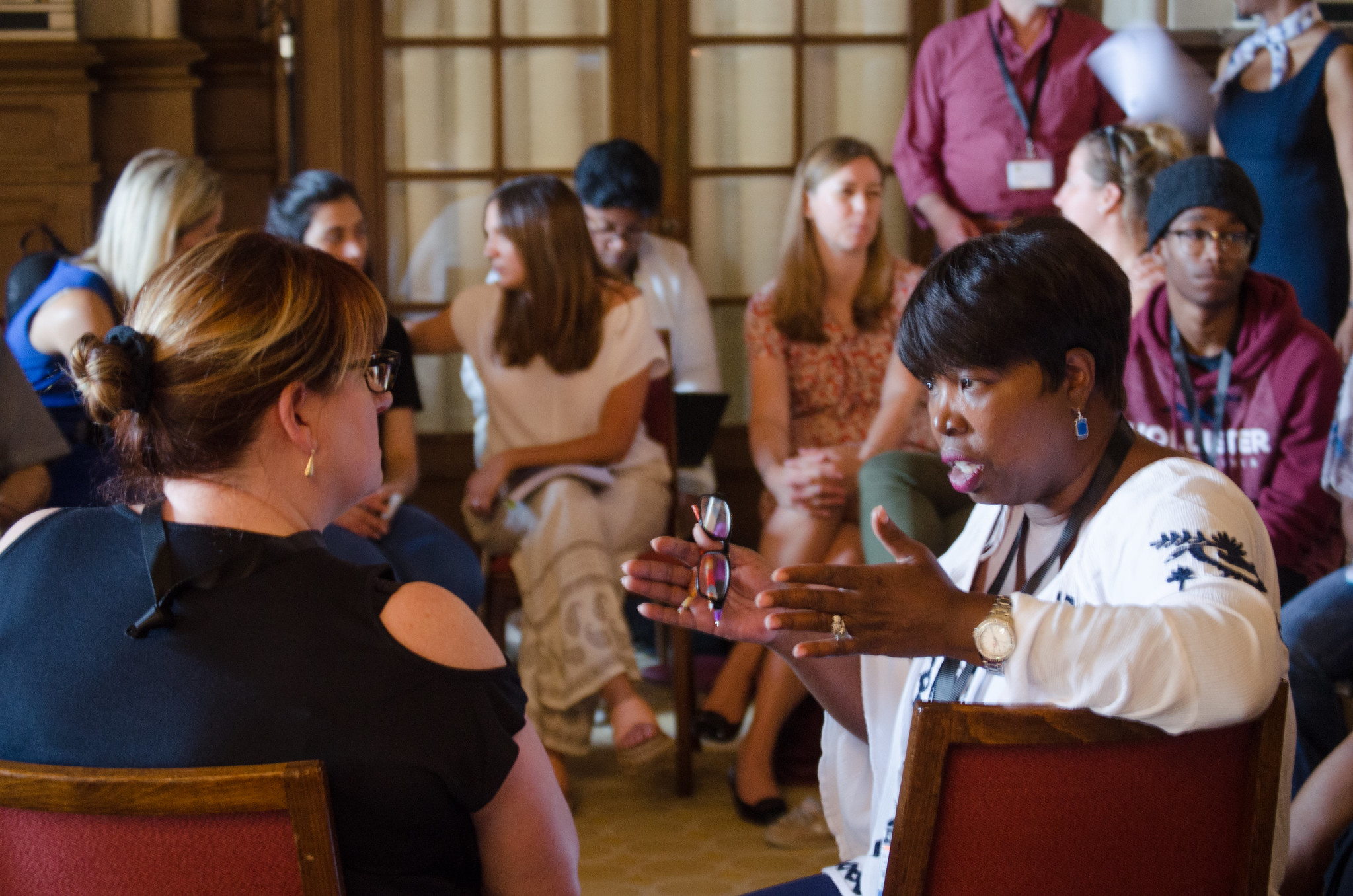Dialogue on race more needed than ever
Just Governance for Human Security 2017
24/08/2017
For the second year in a row, 14 people from Tulsa, Oklahoma (USA) came to the Caux Forum to hold a dialogue on healing the wounds of the past and working for better race relations in their community, as part of Just Governance for Human Security 2017.
Tulsa carries a long history of racial tensions and violence. Back in 1921, the city witnessed one of the most atrocious episodes of racial violence in the history of the United States. The Tulsa Race Riots led to the death of more than 300 people in two days, mostly African Americans. More than nine decades later, in 2016, blacks and whites from Tulsa got together in Caux to initiate a constructive dialogue.
‘Last year none of us really knew each other, and once here, this unbelievable bond was created,’ said Michelle Place, Director of the Tulsa Historical Society and Museum. ‘The magic of Caux really took place for us. When we went home, four of us named ourselves the Caux Queens. We met a lot of times and really came to love one another and look for ways to collaborate.’
Soon after, the Caux Queens and other Tulsans who had been at Caux organized a public forum on race relations at the Tulsa Historical Society and Museum. ‘We decided that we have to talk,’ explained Place. ‘Caux is built on dialogue. We have to tell our story.’
‘When you deal with invisible history – the one that people pretend that never existed, as it was the case in Tulsa for decades – it impacts all of us,’ said Reverend Sylvester Turner, member of the Richmond Slave Trail Commission. ‘It sustains the trauma that has occurred because of that history. Until you begin to identify and then address the issue, things do not get better.
The most powerful thing that had come out of dialogue in Turner’s city, Richmond, Virginia, was that it became ‘okay to talk about the racial divide in our community’, he said. ‘So that which was invisible once, was now a common conversation that we can have, a base to grow in to address the healing that is necessary.’
Kimberly Ellis, a scholar who has researched Tulsa’s race relations, emphasized the importance of placing Tulsa’s case in the larger context of the white supremacy ideology still present in the United States. ‘There are still a lot of people who are infected by this disease’, she said. ‘They believe they are inherently, genetically and culturally superior and that black people are inherently, genetically and culturally inferior. This ideology is reflected in the US legal, social, religious and political system from the colonial period on through today.’
One of the initiators of the Tulsa dialogue in Caux was John Franklin, from the National Museum of African American History and Culture at the Smithsonian. He explained how the language and tone of the debate about race relations in the US has shifted since last year, through the campaign and election of President Donald Trump. ‘Exclusion and racism has become acceptable now,’ he regretted. ‘We need, more than ever, to promote dialogue.’
Recent incidents in the United States, such as the clash between white supremacists and anti-far-right protesters in Charlottesville, Virginia, which ended up in the death of a young woman and dozens injured, confirm the relevance of dialogue to tackling growing extremism, violence and intolerance.
After their second experience of Caux, the Tulsa delegation expressed their commitment to continuing dialogue at the local level, as a necessary healing step for their community.































